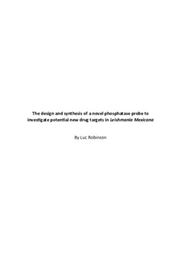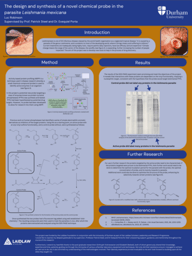As I wrap up my Leadership in Action project at The Portland Trust, I want to take a moment to reflect on the work I’ve been involved in, what I’ve learned, and how the experience has shaped my understanding of leadership.
This summer, I had the fantastic opportunity to aid The Portland Trust in its mission to advance peace and stability in the Middle East through economic development. My project was embedded within the Palestine Emerging Healthcare, Partnership & Transformation strategy - a long-term blueprint to transform Palestine’s healthcare system through innovative partnerships, sustainable financing, digital transformation, and systemic reform. Within this vast agenda, my focus was twofold: health insurance reform and the development of pilot projects, particularly mobile health units and telehealth platforms.
With regard to health insurance reform, I worked with regional partners to produce a comprehensive review of Palestine’s healthcare system - tracing its evolution, the path dependencies this created, and how those legacies constrain performance today. The aim was to understand the structural barriers to reform, how these undermine current efforts, and what future interventions may be able to bring about the desired change. Based on these findings, I then developed a series of 10 programme plans to address the key structural weaknesses in the system, ranging from financing reforms to governance mechanisms. While further work is needed to operationalise these initiatives, the recommendations provide a sequenced, evidence-based foundation to build on, and will continue to be refined through dialogue with people on the ground in the West Bank.
Alongside this policy work, I became involved in supporting pilot projects, especially those focused on mobile health units and telehealth. Here I was able to see how theoretical frameworks and financial planning translate into real-world initiatives. Working with colleagues, I helped refine strategy frameworks and project delivery plans. It was especially rewarding to see how mobile health units could reach underserved communities, and how telehealth platforms could expand access to mental health services - an urgent need given the psychological impacts of the current conflict, especially on children in Palestine, who make up 43% of the population. These pilots represent small but crucial steps towards making healthcare in Palestine more resilient, equitable, and sustainable.
A consistent theme throughout my placement has been the cultural dialogue with people on the ground in Palestine, particularly in the West Bank. I’ve been fortunate to speak regularly with clinicians, NGO partners, and community representatives, whose insights have challenged me to rethink assumptions and test the feasibility of policy ideas. These conversations reminded me again and again that local voices must lead - Palestine has repeatedly shown that policy designed in isolation is likely to fail, but policy informed by local realities and community perspectives has a far greater chance of succeeding.
Of course, there have been challenges. Working at a distance, I often felt the tension between wanting to make bold recommendations and recognising the limits of what is practical in the current political and economic environment. I also had to learn to work with uncertainty: in Palestine, information is often incomplete, priorities can shift quickly as the political situation evolves, and progress depends on many stakeholders with complex and competing interests. At first, I found this hard to navigate. But gradually I came to see it as a core part of the leadership challenge - the ability to adapt, to listen, and to keep projects moving forward without losing sight of long-term goals.
This brings me to the lessons I’ve learned about leadership. First, I’ve realised that leadership in unfamiliar contexts begins with humility. My background is in medicinal chemistry, not health policy, and I was entering a community and region that is not my own. I had to be ready to ask questions, to admit what I didn’t know, and to treat every conversation as a chance to learn. Second, leadership is about convening rather than commanding. My role was never to impose solutions but to bring together different perspectives, identify common ground, and help translate ideas into workable plans. Finally, I’ve learned the importance of patience. Systemic reform is slow, and while quick wins can be necessary in moments of acute need, a history of piecemeal fixes and stopgap policies has also contributed to today’s dysfunction - creating patchwork rules, perverse incentives, and fragile workarounds. Genuine progress requires persistence, coherent sequencing, and governance that ties short-term actions to a credible long-term roadmap.
As I leave The Portland Trust, I carry with me not only the technical knowledge I’ve gained about health insurance systems and pilot project design but also a deeper appreciation of what it means to lead in complex, cross-cultural environments. The experience has reminded me that real leadership is less about delivering answers immediately and more about listening, adapting, and creating space for locally led solutions.
My time in London, working closely with partners in the West Bank, has been both intellectually challenging and personally rewarding. It has anchored my academic interests in something much more tangible: the practical realities of how people navigate fragile health systems every day. I am immensely grateful for the opportunity, and I know the lessons I’ve learned will stay with me long after the Laidlaw programme ends.


Please sign in
If you are a registered user on Laidlaw Scholars Network, please sign in